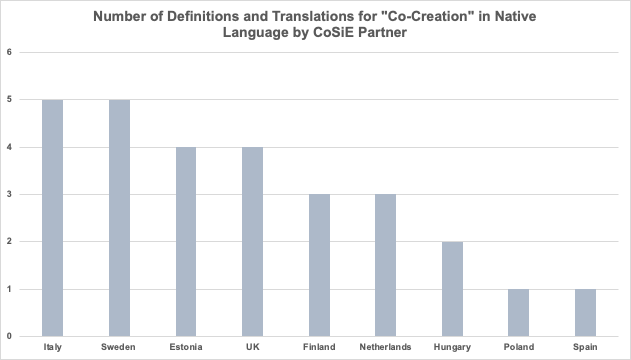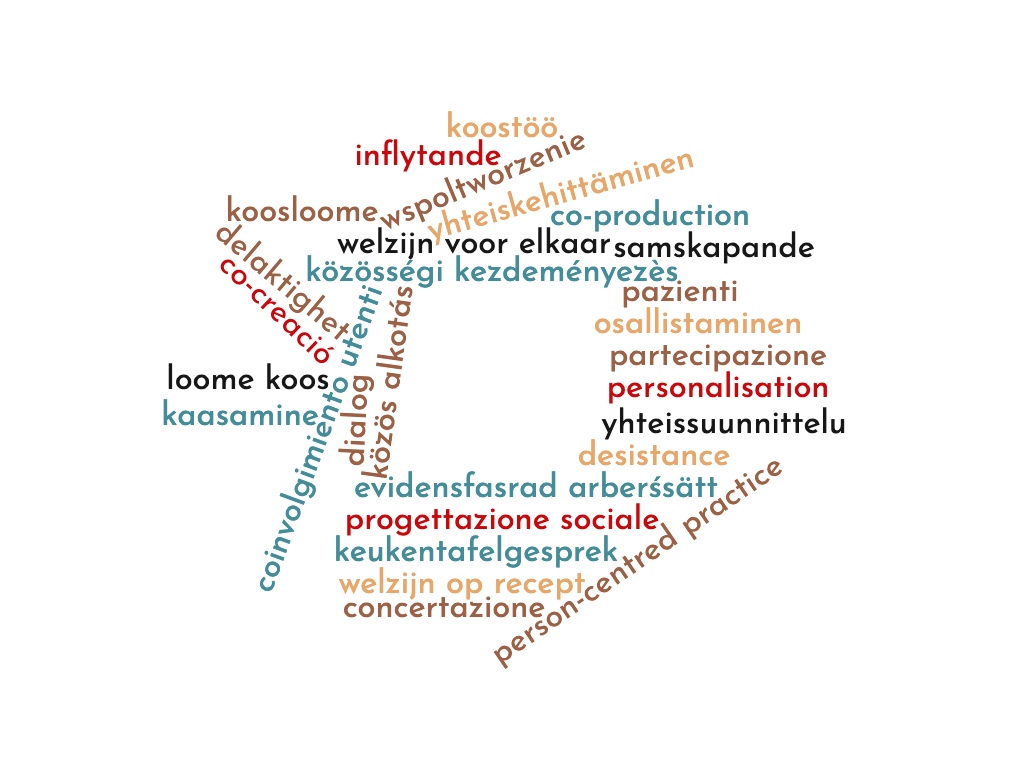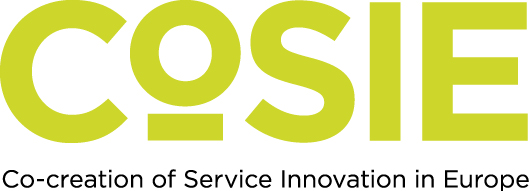Co-creation: Are we all talking about the same thing?

Co-creation provides a powerful environment which enables service users and service providers to participate in active discussion and achieve common goals. By understanding each other – and sharing perspectives – the group can proactively work together towards the same objectives.
Communication is always key to success when working with others, but what if native language is also part of the challenge of communicating effectively? With “co-creation” we have an English noun that is being used throughout the CoSIE project. It is just assumed that “co-creation” – in its English form – can be applied and understood across all partners involved with the CoSIE project, which may not be the case.
To explore this assumption further, as part of a CoSIE Knowledge Transfer event in Tallinn in May 2019, partners were asked to provide their native translation for “co-creation”. The results were fascinating and entirely unexpected! It was anticipated that there would be a naturally translated term from English for “co-creation” being used by partners and this was indeed the case, however, it was discovered that most partners also have more than one term for “co-creation” within their own language.
An example of this occurred with our United Kingdom colleagues. Despite English being the most widely used language within the project, UK participants have four different terms for co-creation: personalisation, person-centred practice, co-production, and desistance. So even to native English speakers there are multiple alternatives for the term co-creation, each with its own nuanced definition. The same complexity is present in most other languages spoken by CoSIE partners, significantly increasing the possibilities for miscommunication.
To highlight these multiple terms used by partners and colleagues throughout the CoSIE project, we provide the following simple visualisations. The data for both visualisations was provided by partners and colleagues at the aforementioned Knowledge Exchange event in Tallinn.
Our first bar graph visualisation provides a quantifiable perspective regarding the number of native language terms for co-creation, by partner country:

As the chart shows, our Italian and Swedish colleagues provide the largest number of terms for co-creation (five), followed by our Estonian and UK colleagues (four). Finnish and Dutch partners use three terms, and Hungarian colleagues two. Conversely, our Polish and Spanish colleagues use a single term for co-creation (“wspoltworzenie” and “co-creació” respectively).
To further highlight the multiple terms for co-creation used by CoSIE partners and colleagues, the following word cloud visualisation has been produced:

Given this quick exercise, we can immediately see that merely discussing co-creation in a native language is a complex task: across nine countries there are twenty-eight different terms used for co-creation.
This provides the CoSIE project and partner countries with a challenge around communication – especially in the arenas of engagement and publicity – if communication is to be effective.
Using just “co-creation” adds even more complexity with regards to CoSIE and prompts pertinent questions: Do we all share the same understanding of “co-creation” when we discuss it amongst our colleagues and participants? Are our intentions of co-creation understood by the instigators of co-creation – and the users and beneficiaries of service innovation?
As originally stated, an environment that encourages co-creation is a powerful one, but to leverage that power, we must ensure that all participants understand the co-creation concept. Is the term “co-creation” doing a disservice in a multi-lingual community? The evidence suggests there is a need to address this further. With that in mind, we believe we should identify additional terms which can also be more locally understood, alongside the use of “co-creation” to avoid confusion and assist with spreading the good work of CoSIE.
Writers: David Jamieson, Rob Wilson, Mike Martin, Northumbria University
